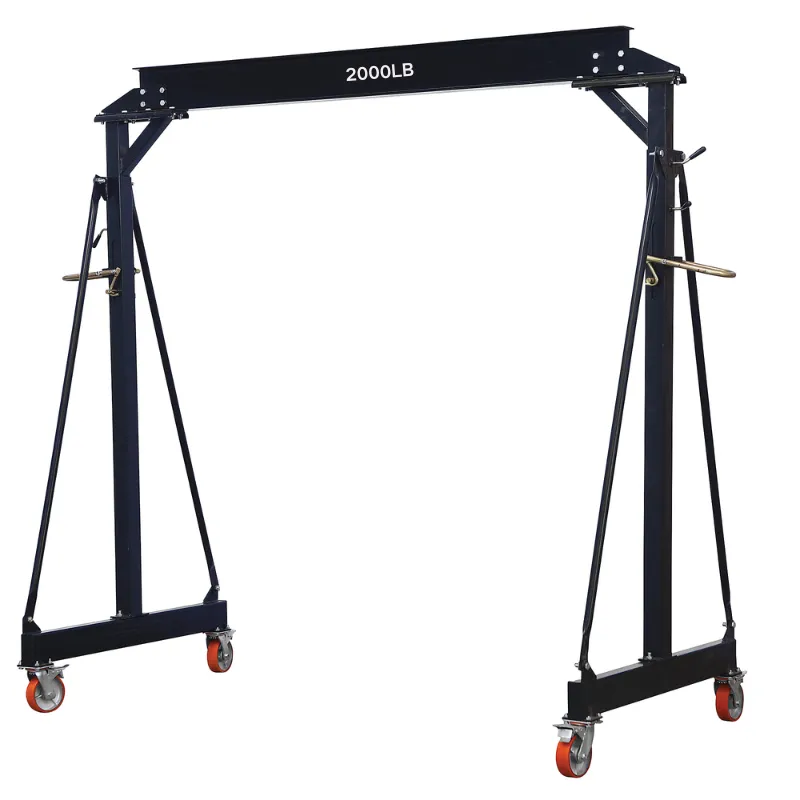Cost of 1 Ton Overhead Cranes and Their Features
When it comes to lifting heavy loads in various industrial settings, an overhead crane is an indispensable piece of equipment. These cranes are specifically designed to lift and move materials across a designated area, enhancing productivity and safety in operations. The price of a 1-ton overhead crane can vary significantly depending on various factors, including the configuration of the crane, the manufacturer, and additional features.
In general, the cost of a 1-ton overhead crane ranges from a few thousand to tens of thousands of dollars. Basic models, which may not include some advanced features, typically start at around $2,000 to $5,000. However, if you're looking for a more robust setup with higher quality components, the price can increase substantially. Custom-built models designed for specific applications or challenging environments can cost upwards of $10,000 or more.
.
The materials used in the construction of the crane also affect its price. Cranes made from high-quality steel, for example, might be more expensive but can offer greater durability and load-bearing capacity. Additional features such as remote control operation, safety devices like limit switches, and automatic braking systems can also contribute to the overall cost.
overhead crane 1 ton price

Another crucial factor is the manufacturer. Well-established brands that are known for their reliability and performance often charge a premium for their products. Investing in a crane from a reputable manufacturer can be a wise choice in the long run, as it ensures you receive a quality product backed by customer support and warranties.
In addition to the upfront cost of purchasing a 1-ton overhead crane, it is essential to consider the associated operating and maintenance expenses. Regular inspections, preventive maintenance, and any necessary repairs can add to the long-term cost of ownership. A well-maintained crane not only operates more efficiently but also ensures the safety of the operators and materials being handled.
When considering the investment in a 1-ton overhead crane, it’s crucial to evaluate your specific operational needs. For companies that frequently lift and transport heavy materials, the benefit of increased efficiency and reduced labor costs can offset the initial investment. Moreover, it’s advisable to conduct thorough market research and obtain quotations from multiple suppliers to ensure you’re getting the best deal.
In conclusion, while the price of a 1-ton overhead crane can vary widely, the investment in quality equipment is vital for enhancing workflow and safety in industrial applications. By considering the type of crane, material quality, manufacturer reputation, and associated operating costs, businesses can make informed decisions that align with their operational requirements. Ultimately, a well-chosen overhead crane will not only improve productivity but also contribute to the long-term success of industrial operations.
-
Unlock Seamless Relocation with Our Heavy Equipment Moving ExpertiseNewsJun.06,2025
-
Unleash Unrivaled Flexibility with Our Adjustable Gantry CraneNewsJun.06,2025
-
Unleash Heavy-Duty Efficiency with Our Industrial Gantry Crane SolutionsNewsJun.06,2025
-
Revolutionize Steel Handling with Our Magnetic Lifter RangeNewsJun.06,2025
-
Master Equipment Mobility with Premium Machinery Mover SolutionsNewsJun.06,2025
-
Elevate Your Material Handling with Magnetic Lifter TechnologyNewsJun.06,2025
-
YS Permanent Lifting Magnets: The Smarter Way to Handle SteelNewsMay.22,2025
